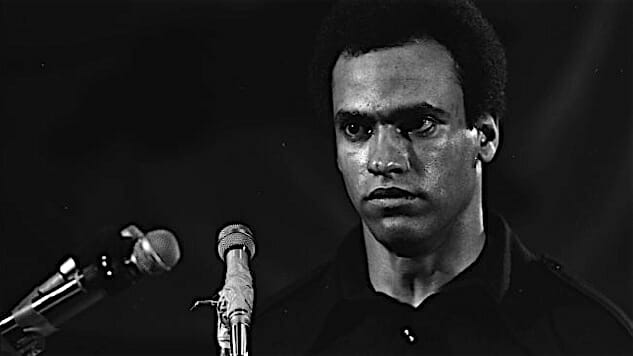Cinema Under the Influence: Huey P. Newton (1942-1989)
Exploring the intersection with and influence on cinema of famous figures outside the world of film

There are few of us who haven’t seen that photo of Huey Newton, sitting stiffly in a large wicker chair, holding a spear in one hand and a rifle in the other. His expression is hard, full of resolve. The image of a revolutionary in a beret and leather jacket, charismatic and stridently radical, would become part of the world-shaking iconography of the 1960s. Influenced by the teachings of Malcolm X, the Black Panthers initially began in Oakland, Calif., to protect black citizens from white policemen, but soon spread into education and community work, among other enterprises. At the same fervent period of the late ’60s, American cinema was beginning to catch up to the social movements that were sweeping the rest of the nation.
-

-

-

-

-

-

-

-

-

-

-

-

-

-

-

-

-

-

-

-

-

-

-

-

-

-

-

-

-

-

-

-

-

-

-

-

-

-

-

-








































